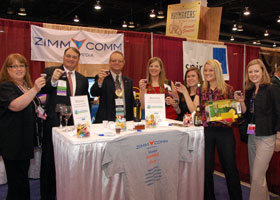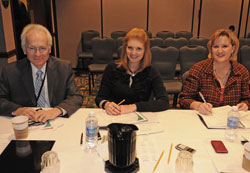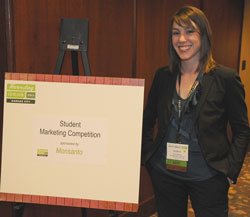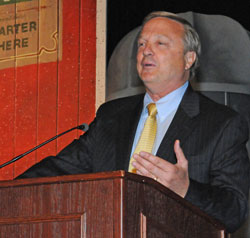 The 2011 NAMA Marketer of the Year was awarded to Roger Reierson, AdFarm. Roger was very surprised to receive the award and says it does not mean it’s “the end.” There’s lots more to come from this man.
The 2011 NAMA Marketer of the Year was awarded to Roger Reierson, AdFarm. Roger was very surprised to receive the award and says it does not mean it’s “the end.” There’s lots more to come from this man.
I spoke with Roger afterward. He says he feels humbled and honored. He’s says the ag industry is a big family and he owes the award to a lot of people. He says NAMA has connected him to a lot of good people. Listen to our conversation: Roger Reierson Interview
2011 Agri-Marketing Conference Photo Album
AgWired coverage of the 2011 Agri-Marketing Conference is sponsored by
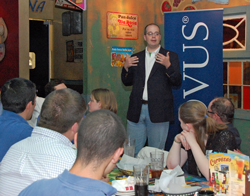 Students from private colleges around Missouri are having a chance to check out what kinds of career opportunities await someone with a background in science and a passion for agriculture at the third “Science in Action: A Foundation for Dynamic Careers” sponsored by
Students from private colleges around Missouri are having a chance to check out what kinds of career opportunities await someone with a background in science and a passion for agriculture at the third “Science in Action: A Foundation for Dynamic Careers” sponsored by  Elanco President Jeff Simmons wants people in agriculture to speak up and make it personal when it comes to safe, abundant, affordable food.
Elanco President Jeff Simmons wants people in agriculture to speak up and make it personal when it comes to safe, abundant, affordable food. The president of the
The president of the 

